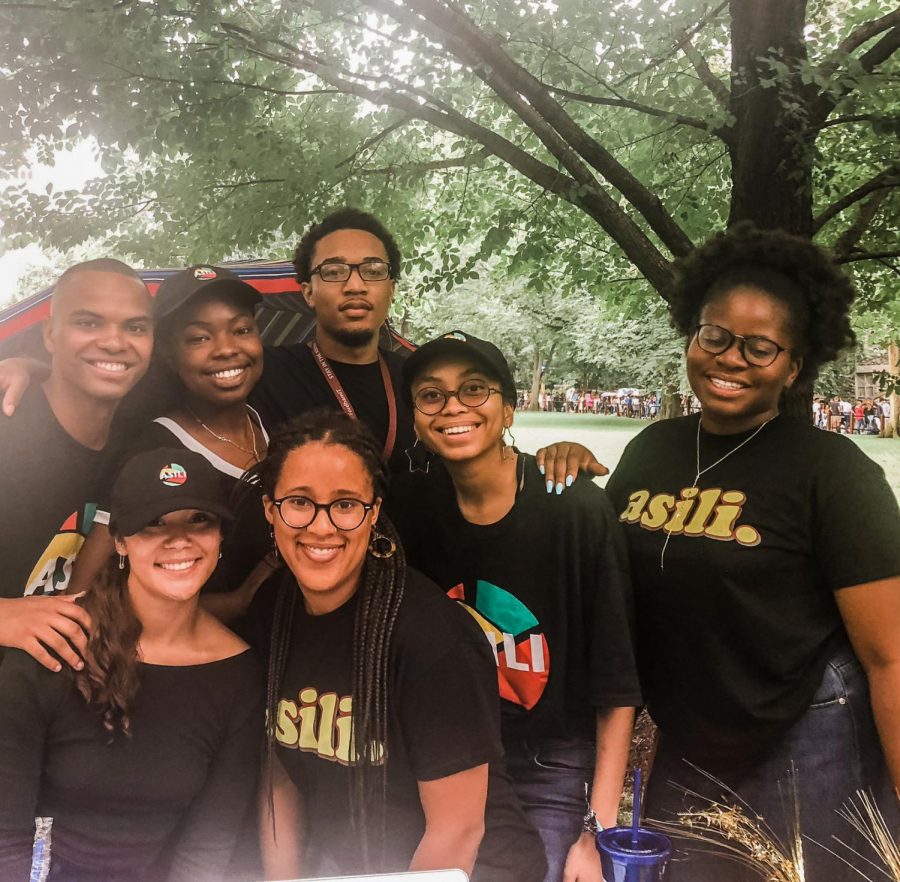Checking in on ASILI’s Demands
The freshman class of 2025, both the biggest and most diverse incoming freshman class of Fordham history, provides ASILI with optimism for the club’s future.
In June of 2020, shortly after national outcry erupted over George Floyd’s murder at the hands of Minneapolis police and protests for Black Lives Matter mobilized across the nation, Fordham’s Black Student Union, ASILI, released a list of 11 demands centered on issues of Racial Justice to Fordham on its official Instagram page.
These demands were focused on how the student club believed the university’s administration could make the school a better place for Black students.
The club pushed the university to adopt updated policies in areas like course curriculums, faculty and administrator hiring and student protests. ASILI members also demanded that Fordham “acknowledge and unpack public safety’s ties to the police” and cut ties with the food service company Aramark, which has been criticized for its work with prisons.
ASILI later released “Volume II” of their demands to the university in late August of 2020, which the club explained were focused on “previous demands that Fordham has not clearly addressed and new demands brought up by members of the student body,” according to their Instagram post. New demands included promoting the chief diversity officer to a senior vice president status and adding Black student representation on all “adjudication committees that pertain to students.”
Some of the newer demands made in August also focused on diversifying residential assistant hires and providing them with mandatory education on anti-racism and Bronx history.
However, right now, continuing to push for these demands is not the main focus for ASILI, said club president Rashain Adams, FCRH ’22. While their list of demands is still important, ASILI is focused on getting their feet on the ground and helping the new freshman members of ASILI.
Typically, ASILI has a good retention with club members but struggles to attract new students each semester, explained Adams. However, this year about 60% of the students at ASILI’s first meeting were freshmen, he told the Ram.
“We feel like we’ve reached more freshmen than we’ve ever reached before,” Adams said. In addition to the influx of new students, they’re also focused on bringing back juniors and seniors who were part of the club during COVID-19, he said.
At the moment, the club is focused on pushing ASILI’s new freshmen members, many of whom are commuter students, to be engaged on campus and join clubs and student organizations outside of class. Returning club members want Black students at Fordham to feel included and engaged on campus, said Adams. He said that he hopes that being part of ASILI can help foster that for Fordham students.
In terms of demands, ASILI has made some progress, and hopes to make more, said Adams. This year’s freshman class is one of the most diverse in Fordham history, with more than 44% domestic students of color and 6.5% international students, according to the official Fordham News website.
“You can see the difference [on campus],” said Adams. A lot of departments have made progress on creating more race inclusive curriculums, but there’s still progress to be made, he said.
Adams said he believes staff diversity has also increased at the university. The new director of residential life, Charles Clancy, is Black, and Adams said he thinks that, in terms of hiring, the school is definitely seems to be “looking in more places than they used to be looking for applicants.”
There isn’t as much energy now for meeting the demands as there was last summer, but Adams said he still sees a strong desire to change and make Fordham more inclusive across the university.
“The want to change is still there,” Adams said. “It doesn’t seem as urgent as it used to be, but I do believe that if we can continue to work with the administration we can get some of these changes past.”










































































































































































































